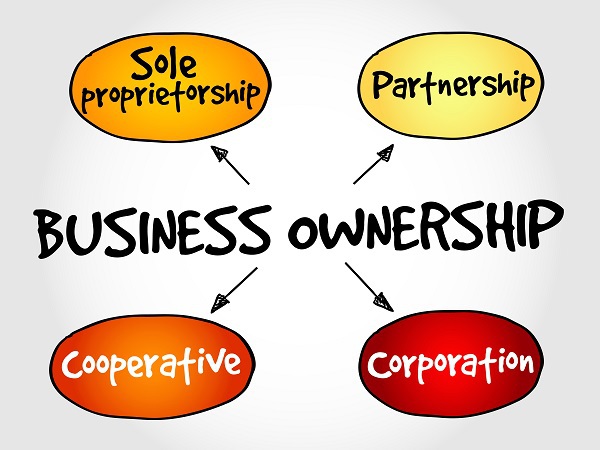
by Bill Miller | Jul 27, 2018 | Estate Planning, Probate
Josiah M. had few possessions when he died, though he had many loving friends and family. He lived in a rented independent living facility, owned one car, and had several small bank accounts. His family began the process of probating his estate. His attorney suggested they take the small estate probate route.
Probate occurs when a judge determines that the Will of a deceased person is valid. It also refers to the administration of the estate whether a Will exists or not. Many people try to avoid probate proceedings because they can be expensive and lengthy.
A Fairly Easy Solution
Sometimes the person who passed away, the decedent, does not own much property at the time of death. Even then, some of the property they own may not become part of their probate estate.
A surviving spouse or one of the heirs can file a petition for summary distribution of the decedent’s personal property. Note that real property – like homes or land – cannot be transferred through a small estate proceeding.
Summary distribution can be requested under certain circumstances:
- The value of the estate does not exceed $25,000.
- The decedent was an Alabama resident at the time of death.
- A petition for appointment of personal representative is not pending or has not been granted.
- It’s been at least 30 days since the notice of filing was published.
- Funeral expenses have been paid or arrangements have been made to pay them.
- A probate judge has determined succession if the decedent did not leave a Will.
- Decedent’s Will, if any, has been filed in the office of the judge of probate.
- Notice of filing the petition has been published in a local newspaper or posted at the courthouse.
- All claims against the estate have been paid or arrangements have been made to pay them.
For people trying to probate a small estate, this procedure provides a faster, easier way to settle the estate.
Use the Right Probate Procedure When the Time Comes.
Josiah’s family was able to file a petition for summary distribution of his estate. He did not own real property and his probate assets (excluding bank accounts and insurance policies with named beneficiaries) were worth less than $25,000. His estate met all the other qualifications, also.
The attorneys at Miller Estate and Elder Law assist clients probate whether the estate is large or small. For a free consultation, contact us at 256-251-2137 or use our convenient Contact Form. Although we’re located in Anniston, we also help clients in the Birmingham, Gadsden, Hoover, Talladega, Vestavia Hills, and surrounding areas.

by Bill Miller | Jul 24, 2018 | Business
Starting a business is exciting, but there are so many decisions to make. One choice affects every other aspect of the business: choosing which of Alabama’s business entities is right for you.
Sole Proprietorship
One of the easiest types of business to start, a sole proprietorship has only one owner.
Sole proprietors do not have to file formation documents or be registered with the State of Alabama. However, sole proprietors may need to apply for licenses and registrations depending on the type of business they operate.
Decision-making is straightforward. Management is flexible, because the owner does not have to answer to shareholders, other owners, or a board of directors. However, getting opinions and backup from other owners could lessen the stress of day-to-day operations.
One disadvantage to sole proprietorships is that the owner is completely liable for the business. In fact, the owner’s personal assets may be vulnerable.
Partnership
Two or more people are required to form a partnership. Typically, the partners will sign some kind of agreement to form the partnership, although it not required by law. As mentioned above, though, state and local governments may require licenses or registrations to operate within their jurisdictions.
Management and decision-making is still fairly flexible. Partnerships can be unstable, though, and dissolve when one or more partners leave the business.
Partners may find it difficult to sell or otherwise transfer their business interest.
Corporation
This is one of the more complicated business entities. Corporations are legal entities separate from the persons who own them.
Forming a corporation in Alabama requires filing documents, including a Domestic Business Corporation Certificate of Formation. The completed certificate and filing fees should be filed with the Office of the Judge of Probate in the county where the corporation’s registered office is located. Additional documents are filed, including a Name Reservation Certificate from the Alabama Secretary of State’s office. A charter that states the purpose of the business is sent to the new corporation.
One big advantage to the corporate structure relates to liability. The owners of the corporation have limited liability for the corporation’s actions. It’s also easier for shareholders to transfer or sell their interest in the corporation.
Taxation is a disadvantage, however. The corporation’s income is taxes, but also the dividends paid to the shareholders. Corporations are also required to file annual reports.
Limited Liability Company and Limited Liability Partnership\
Some feel these structures offer the best of both worlds: limited liability of a corporation, but the lower taxes of a partnership. LLCs and LLPs are relatively inexpensive and easy to form.
New owners do need to register with the Alabama Secretary of State/ and file a Certificate of Formation with the Office of the Probate Judge.
As the names indicate, owners of these business entities enjoy limited liability. Taxes are paid on a pass-through basis; the LLC and LLP are not taxed, but the owners are.
Learn More About Forming a Business in Alabama.
The attorneys at Miller Estate and Elder Law efficiently assist their clients with business matters. For a free consultation, contact us at 256-251-2137 or use our convenient Contact Form. Although we’re located in Anniston, we also help clients in the Birmingham, Gadsden, Hoover, Talladega, Vestavia Hills, and surrounding areas.

by Bill Miller | Jul 20, 2018 | Estate Planning, trust
Frank had heard about trusts and though he might want to set one up. Researching trusts online just confused him. There were so many types of trusts. However, he did learn enough about living trusts and testamentary trusts to know he wanted to learn more. Frank made an appointment with his attorney to see which one might be right for him.
What’s the Difference?
It comes down to when the trust is actually established.
A testamentary trust is established by an individual’s Last Will and Testament (the Will). The person who signed the Will, the testator, does not create and fund the trust during his or her lifetime. Instead, the trust is set up when the testator’s Will is probated.
The term “living trust” says it all. Also called an inter vivos trust, a living trust is established while the grantor is still alive.
Testamentary Trust Details
This type of trust offers most of the same advantages of any trust. For example, many trusts are used for asset protection. A testamentary trust can be set up to protect an estate from its heirs’ frivolous financial behavior. Giving some beneficiaries a large lump sum inheritance is a recipe for disaster.
More than one testamentary trust can be set up through a Will. For example, Frank might want to set up one trust for his son and one for his daughter.
The trustee of a testamentary trust acts like any other trustee. In other words, the trustee manages the trust assets. Heirs are not always ready to manage assets passed down through a Will. The trustee can distribute trust assets according to the terms of the trust, but also keep an eye on the beneficiaries.
Beneficiaries may enjoy some important tax advantages by receiving their inheritance through a testamentary trust instead of a lump sum. Distributions may be spread out to minimize the tax burden.
Still Have Questions About Using a Testamentary Trust?
Frank decided that a testamentary trust was right for his estate based on his attorney’s advice. If you are interested in establishing a trust, contact a qualified Alabama estate planning attorney today.
The attorneys at Miller Estate and Elder Law assist their clients with all phases of estate planning. For a free consultation, contact us at 256-251-2137 or use our convenient Contact Form. Although we’re located in Anniston, we also help clients in the Birmingham, Gadsden, Hoover, Talladega, Vestavia Hills, and surrounding areas.

by Bill Miller | Jul 17, 2018 | Estate Planning
Watching a family fight over a loved one’s Will is heartbreaking. Take Marjorie J.’s family. When Marjorie passed away last year, she left behind a pretty nice estate. She intended her property and money to go to her family – or, at least, some of them. However, several people were shocked to learn they were not even mentioned in the Will and would receive nothing. They began to question whether Marjorie’s Will was valid. The stage was set for an expensive, disheartening courtroom battle.
If only Marjorie had known there were ways to avoid a Will contest.
Include a No-Contest Clause
Marjorie picked up a form to use for her most recent Will. The form was okay, as far as it went. However, it did not have a no-contest clause that could have headed off any future Will contests.
This clause states that anyone who challenges the Will loses their inheritance. No-contest clauses are usually upheld in court. Marjorie’s son, for example, files a lawsuit challenging her Will. He lost the lawsuit and the money he would have inherited.
One thing to remember if you want to put a no-contest clause in your Will: for someone to lose their inheritance, they must be receiving something. If you plan to use a no-contest clause, it’s best to leave a small sum to the people you think will contest the Will. This might discourage them from fighting it.
Communicate with Loved Ones
It is not always easy to talk about estate plans with family members. But it is necessary. Keeping your family informed can help manage their expectations. This is especially true if you plan to disinherit someone. In fact, failing to mention why you are disinheriting someone could lead to a Will contest.
For example, Marjorie had given her son a lot of financial support throughout the years. Her daughter had never needed any help, though. So, Marjorie left the bulk of her estate to her daughter to “even things out.” Had she explained this to her son, or even just mentioned it in her Will, he might have handled it better.
Explore Trusts
Sometimes a Will is not the best way to pass your property to your heirs. Trusts offer tax benefits and confidentiality. They are also less likely to be contested.
Marjorie did not speak to an attorney about trusts. She felt they were only for really wealthy people. However, passing her property through a trust may have been a better choice.
Consult with an Alabama Estate Planning Attorney.
The attorneys at Miller Estate and Elder Law have the experience you need to get the estate plan you deserve. Contact Miller Estate and Elder Law at 256-251-2137 to schedule an appointment or fill out our convenient Contact Form. We help clients in Anniston, Talladega, Birmingham, Gadsden and surrounding communities

by Bill Miller | Jul 13, 2018 | Medicaid, Medicaid Planning
Both Medicare and Medicaid are government programs that help eligible individuals with medical costs. Because of the similar names, though, people have trouble knowing which program they need. Let’s take a look at how each program handles two important things: eligibility and services.
Medicare and Medicaid Eligibility
Medicare is offered only to those 65 or older or people with End Stage Renal Disease (ESRD). Medicaid offers benefits from children to pregnant women to nursing home residents.
People can check online or with their local Social Security office to see if they are qualified for Medicare. Typically, most people are enrolled in Medicare Parts A and B when they turn 65.
The application process for Medicaid is more complicated. Benefits are based on income and resources. Medicaid looks back at applicant’s finances for five years from the date of application. Some applicants may find they are not eligible for benefits, or their benefits are delayed, because of transactions like transferring assets to their children.
So, a person over the age of 65 with limited income and resources might be eligible for both Medicare and Medicaid.
Medicare and Medicaid Services
Medicare is divided into four parts:
- Part A – Inpatient care at a hospital or skilled nursing facility.
- Part B – Some preventive care, outpatient care like doctor’s appointments.
- Part C – Advantage plans that combine Part A and Part B benefits, as well as the option to include drug coverage.
- Part D – Prescription drug coverage.
Medicare recipients choose which plan they want, usually based on their needs and how much they can pay for the premiums.
Medicaid, on the other hand, pays for care like that received at a hospital or skilled nursing facility, federally-qualified health center, rural health clinic, freestanding birth center, and so on. This is by no means a comprehensive list of the services offered by Medicaid. In fact, states typically offer the following programs to help the following groups:
- Children,
- Parents and caretaker relatives,
- Pregnant women,
- Elderly and disabled persons,
- Nursing home residents, and
- Patients with breast or cervical cancer.
So, Medicare and Medicaid both offer benefits that cover medical care. However, Medicaid benefits target segments of our population that may not be covered by Medicare.
Learn More About Medicaid Eligibility.
The attorneys at Miller Estate and Elder Law know how to help you with Medicaid eligibility. For a free consultation, contact us at 256-251-2137 or use our convenient Contact Form. We also offer free workshops and guides with more information about topics that matter to you. Although we’re located in Anniston, we also help clients in the Birmingham, Gadsden, Hoover, Talladega, Vestavia Hills, and surrounding areas.




